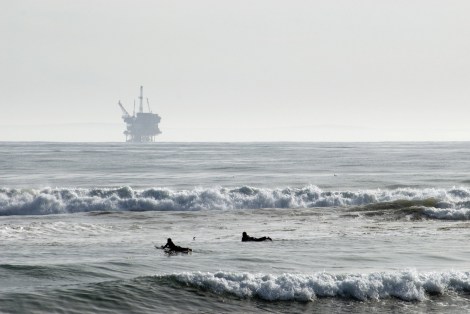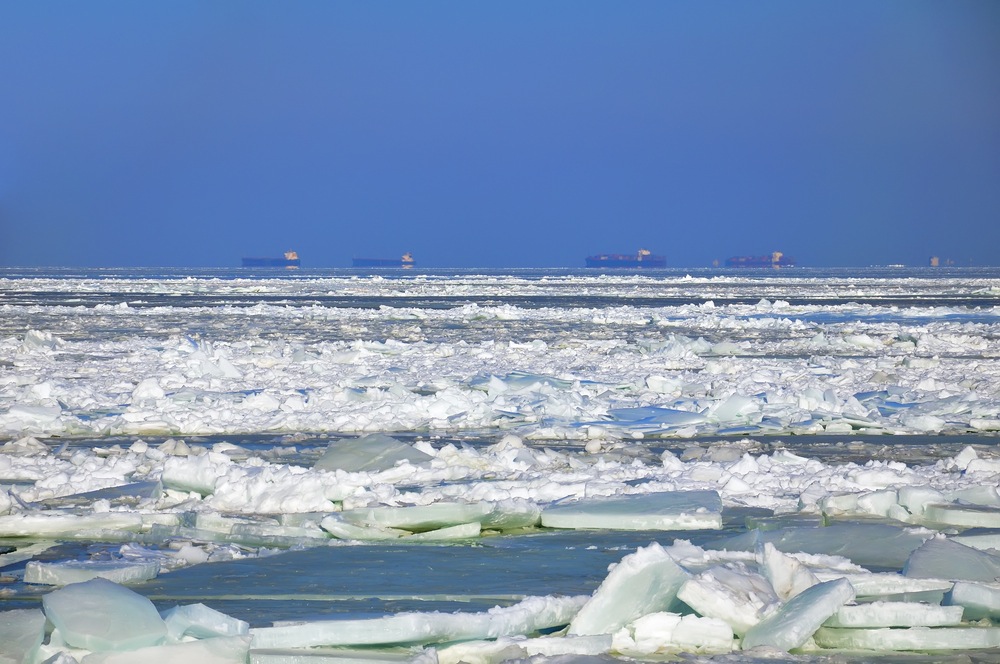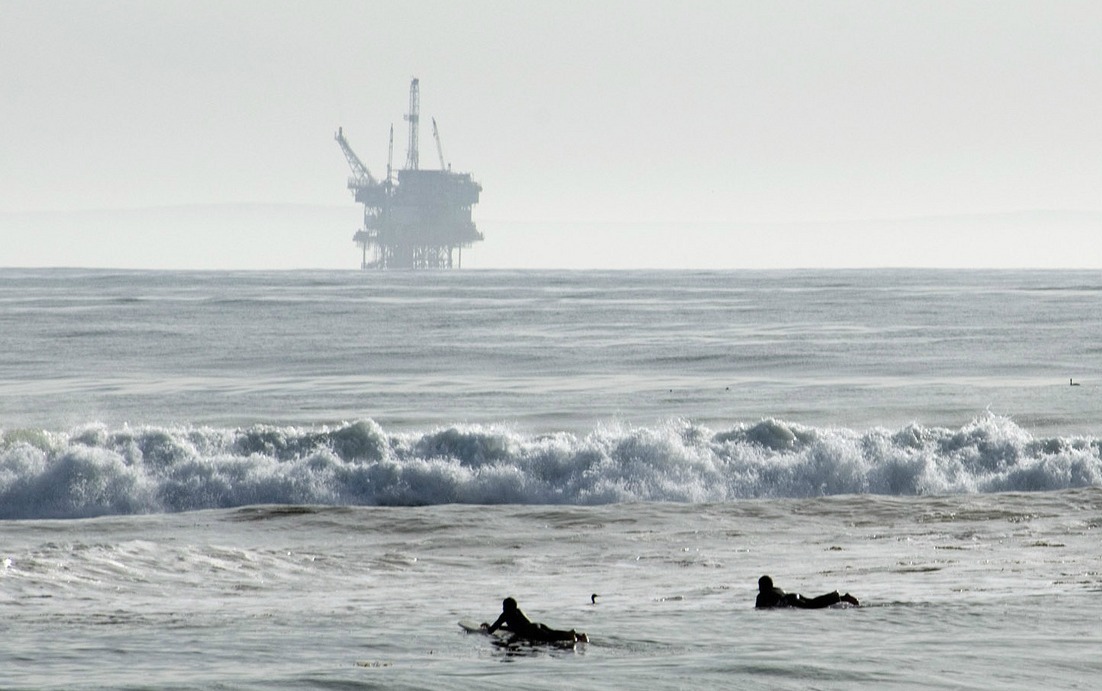Exciting new update in the chronicles of America’s domestic oil-and-gas boom: Not only is offshore fracking a thing, but it’s been happening off the coast of California for a good 15 years now, in the same sensitive marine environments where new oil leases have been banned since a disastrous 1969 spill.

Berardo62Drillin’ U.S.A.
If that’s news to you, you’re not alone — the California Coastal Commission was unaware, until recently, that the seafloor was being fracked. Because these drilling operations happen more than three miles off the coast, they’re under federal jurisdiction, but the state has the power to reject federal permits if water quality is endangered.
The Associated Press has the story:
Federal regulators thus far have exempted the chemical fluids used in offshore fracking from the nation’s clean water laws, allowing companies to release fracking fluid into the sea without filing a separate environmental impact report or statement looking at the possible effects. That exemption was affirmed this year by the U.S. Environmental Protection Agency, according to the internal emails reviewed by the AP. …
The EPA and the federal agency that oversees offshore drilling, the Bureau of Safety and Environmental Enforcement or BSEE, conduct some routine inspections during fracking projects, but any spills or leaks are largely left to the oil companies to report.
Although new drilling leases in the Santa Barbara Channel’s undersea oil fields are banned, drilling rights at 23 existing platforms were grandfathered in. Offshore fracking — pumping hundreds of thousands of gallons of water, sand, and chemicals into the sea floor — can stimulate these old wells into production again.
Companies don’t have to disclose the exact combination of chemicals in their fracking fluids — that information is protected as a trade secret — and none of the experts AP interviewed knew of any study on the fluids’ underwater effects. But some of the chemicals known to be used in fracking are toxic to bottom dwellers like fish larvae and crustaceans, and research has shown that fluids used in traditional offshore drilling can mess with some marine animals’ reproductive systems.
The AP describes one major offshore fracking operation:
In January 2010, oil and gas company Venoco Inc. set out to improve the production of one of its old wells with what federal drilling records show was the largest offshore fracking operation attempted in federal waters off California’s coast. The target: the Monterey Shale, a vast formation that extends from California’s Central Valley farmlands to offshore and could ultimately comprise two-thirds of the nation’s shale oil reserves.
Six different fracks were completed during the project, during which engineers funneled a mix of about 300,000 pounds of fracking fluids, sand and seawater 4,500 feet beneath the seabed, according to BSEE documents.
Venoco’s attempt only mildly increased production, according to the documents. Venoco declined to comment.
Other companies’ offshore fracking explorations have yielded similarly lukewarm results. Chevron’s one effort failed, and only one of Nuevo Energy’s nine attempts was considered successful.
Now that the Coastal Commission has wised up, it plans to ask operators proposing new offshore drilling projects whether they’ll be fracking, and may look into requiring a separate permit and stricter review process for such operations.
At least one BSEE employee appeared skeptical of the environmental safety of offshore fracking, according to internal agency emails obtained by AP. Pacific regional environmental officer Kenneth Seeley wrote this in an email to colleagues in February:
We have an operator proposing to use “hydraulic stimulation” (which has not been done very often here) and I’m trying to run through the list of potential concerns. The operator says their produced water is Superclean! but the way they responded to my questions kind of made me think this was worth following up on.
Still, that application, from privately held oil-and-gas company DCOR LLC, ended up being approved.



